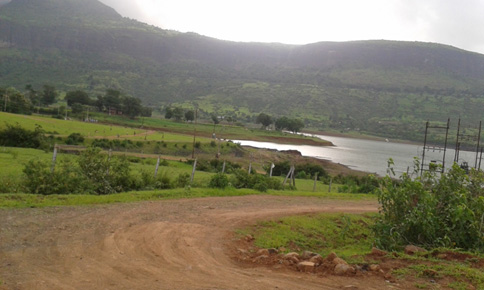Centrally located in a peaceful environment, the newly constructed institute building is in the heart of the city; it is well connected to all parts of the city.The building accommodates:
The classrooms are all very spacious, well lit with mostly natural light and well ventilated. It has all the necessary teaching aids like, audio video equipment, chalk less boards, LED Screen etc.
The classrooms are separated from each other thereby making it a sound proof area suitable for yogic studies for creating a quiet, peaceful learning ambience.

Just classroom training is insufficient to master the skill-sets of Yog. , a few Practice Bays have been created for the Yog students to practice what they learnt in a peaceful meditative ambience.
This room is very spacious, well lit with natural light with natural fresh atmosphere to practice in. It is also well equipped with audio, video, LED screens and other training aids.
The interiors are so soothing with wood and other natural material used for utility and decorative purpose. The perfect blend of ambience and seclusion has the desired effect for Yog participants.
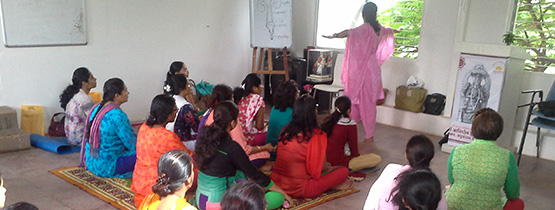
The Terrace is more a Garden, spectacular and beautiful, created in a natural habitat to enhance the serenity and ambience for a meaningful spiritual experience to practice Yog.
Although the property is centrally located in the city, it is blessed with a silent, peaceful, serene atmosphere

A meditation hall is available for the sole purpose of spiritual meditation sessions (sadhana).It has a peaceful ambience with natural décor.The meditation and practice halls are secluded to facilitate the practitioners Sadhana
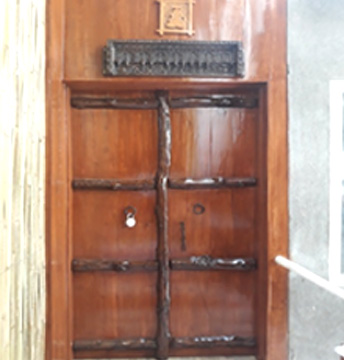
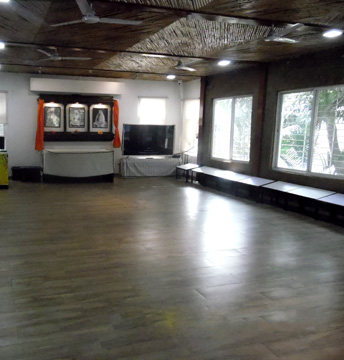
The library houses over 4000 books related to all types of traditional schools of Yog and other spirituality books. Numerous yogic philosophy books, research reports, Master Level Dissertations, Doctoral Theses collection and ancient rare reading material is the pride of the place.

Suitable arrangements are made for all outstation students. This is convenient and affordable for them.It has all the basic amenities and facilities.
An International Residential Yog Spiritual Retreat Centre, developed for International Yog seekers, is being constructed.Various rare plants of medicinal values well have been planted taken care of .The Ashram is 22 kms away from the busy city limits and is situated in serene surroundings. Situated near the hills of Anjaneri, the land has a scenic and mystic value; the mesmeric beauty of the hills and valleys is breathtaking.
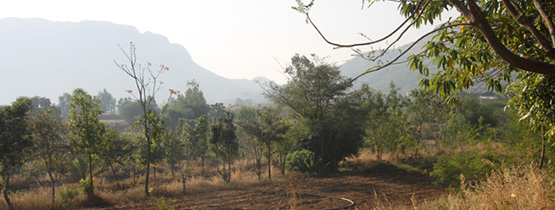
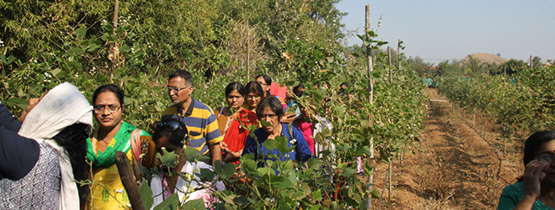
Besides, Anjaneri Hills has also a history to tell: As the legend goes, Anjaneri was the birth place of Lord Hanuman.
The centre is also situated within 10 kilometers from Trimbakeshwara. Trimbakeshwara is a ancient Temple, dedicated to Lord Shiva. Situated approximately 30 kms from Nasik near the mountain of Brahamagiri, from which the river Godavari originates. This famous temple is visited by millions of pilgrims annually.
Trimbakeshwar also has ashrams and Monasteries devoted to various Vedic Traditions, Sanskrit Patha shalaas (Boarding Schools) , International Yog Schools. The place is very scenic and is enhanced with lush green hues during the monsoon season. It is surrounded by mountains and untouched by pollution.
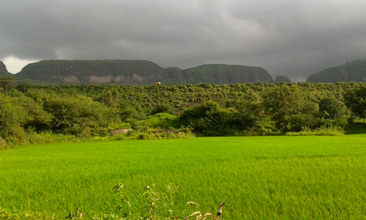
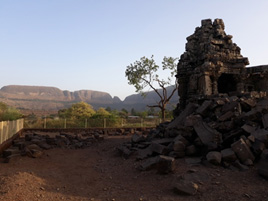
History of Maharashtra cannot be completed without mention of Jainism and Monarchs who were ardent follower or patrons of Jainism.
Archaeological heritage and inscriptions found from this place. The place has its connection to Seuna or Yadava of Devgiri in medieval period of Indian history.
Jain temples in the vicinity of Anjaneri village has an inscription of Yadava or Seuna Monarch Seunadeva. He is represented to have made an endowment to Chandraprabhu Jain temple at Anjaneri in Saka Year 1063 or 1141 AD.
According to some scholars Anjaneri was once a capital of Yadavas who were initially chieftains of Kalyan Chalukya and after that they ruled independently in Maharashtra region.
It is said that the region of Anjaneri had 108 temples of Jaina creed. So we can imagine how a mass population was inhabitant here and the place was a great center of Jainism in the past.
